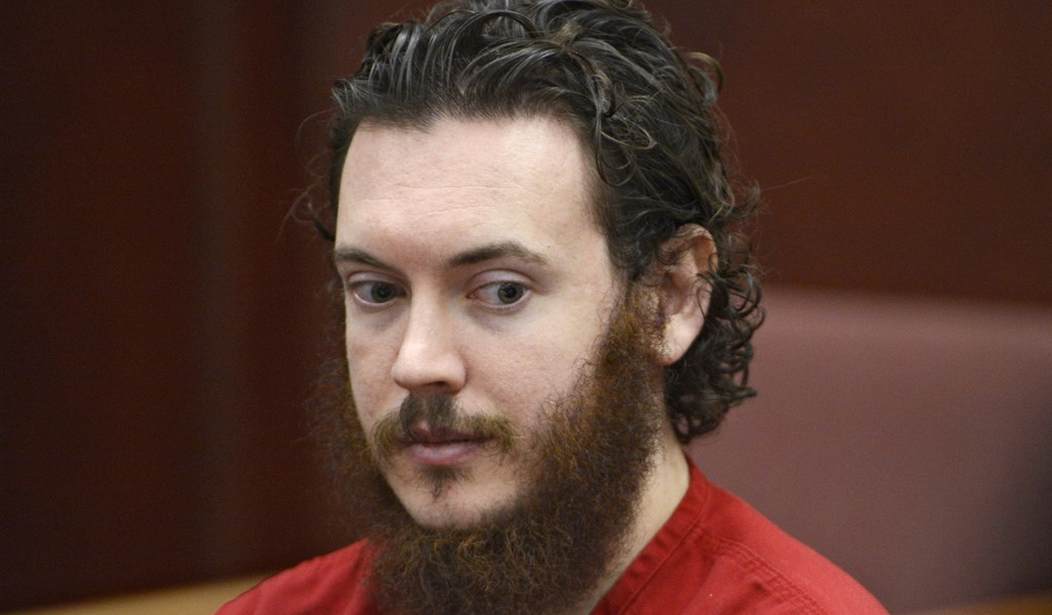James Holmes, the man who carried out the Aurora theater shooting in 2012, was convicted on all counts of first-degree murder yesterday, marking the end of a trial for one of the worst mass shootings in U.S. history. The jury rejected the killer's insanity defense, concluding instead that he acted out of careful premeditation and with mental stability. He now faces the possibility of the death penalty.
The three-year trial involved over 200 witnesses, many of whom were survivors of the shooting and family members of the victims. The prosecutors brought 165 charges against Holmes: 24 counts of first-degree murder — two for each person killed — 140 counts of attempted murder, and one count of possession or control of an incendiary device. Holmes was convicted on all counts. His sentencing phase will begin next week and is expected to last for about a month. Prosecutors signaled back in 2013 that they intended to pursue the death penalty, a punishment that Colorado hasn't dealt out since 2009 in the case of Robert Ray. Prosecutors are likely to press forward with this goal of the death penalty. Colorado is one of 34 states with capital punishment.
Holmes had pleaded not guilty by reason of insanity. His defense team had argued that his murderous actions were the result of schizophrenic delusions, that he had no control over his mind or his actions. In his closing argument, defense attorney Dan King argued:
"The evidence is clear that he could not control his thoughts, ... he could not control his actions, and he could not control his perceptions... Only the mental illness caused this to happen and nothing else."
Recommended
The prosecution, however, pushed a starkly different view: that Holmes unleashed violence on a movie theater in a calculated way so that he could feel better about himself. The chief prosecutor, Arapahoe County District Attorney George Brauchler asserted:
"Look at the evidence, then hold this man accountable. Reject this claim that he didn't know right from wrong when he murdered those people and tried to kill the others... That guy was sane beyond a reasonable doubt, and he needs to be held accountable for what he did."
Evidently, the jury agreed. They sided with the prosecution after less than 13 hours of deliberation.
The prosecution's claim was helped a great deal by the knowledge of Holmes' personal life. In the months prior to the shooting when Holmes was planning the attack, he had experienced a break-up with his girlfriend, failed a major exam, and dropped out of graduate school. This fueled the perception that Holmes was motivated by a selfish desire to make himself feel better, not by some form of mental illness. Prosecutors pushed that case and they did so successfully.
The verdict was read yesterday to a courtroom packed with family members of the victims and survivors, some of whom were personally injured in the attack. Each charge was read individually, and with each "guilty" decision, the individuals in the audience reacted visibly, each in their own ways. Caleb Medley, who was paralyzed in the attack, sat in his wheelchair and closed his eyes, nodding with approval. Kathleen Larimer, the mother of victim John Larimer, cried over her son. Sandy Phillips clung to her daughter's scarf. Holmes, though, stood before the judge without expression.
Next Monday marks the three-year anniversary of that terrible night in Aurora, and on that anniversary, prosecutors and defense attorneys will begin debating the terms of Colorado's death penalty. If the prosecutors prevail, Holmes will be the second high profile killer to receive the death penalty this summer. Last month, Dzhokhar Tsarnaev received the death penalty for his role in the Boston bombing in 2013 — though that ruling came on federal, not state charges.
The majority of Americans agreed with the death sentence for Tsarnaev. According to a CNN poll from April, 53 percent of Americans said he should receive the death penalty, while 45 percent said he should get life in prison. Respondents in the northeastern region of the U.S. — where the bombing took place — were even more supportive of the death penalty for Tsarnaev, with 58 in support and 38 against. Outside the northeast, opinion was 52 in support and 47 against.
There has been no public polling data on whether the Aurora shooter should receive the death penalty, though Colorado residents are overwhelmingly supportive of capital punishment. According to a Denver Post poll from 2014, 63 percent of Coloradans support the death penalty while 28 percent oppose it. Ten percent are unsure. The death penalty also enjoys strong support among Americans generally, with 63 percent approving of it and 33 percent opposing it. In the context of the last fifty years, that level of support for capital punishment is relatively high.
























Join the conversation as a VIP Member